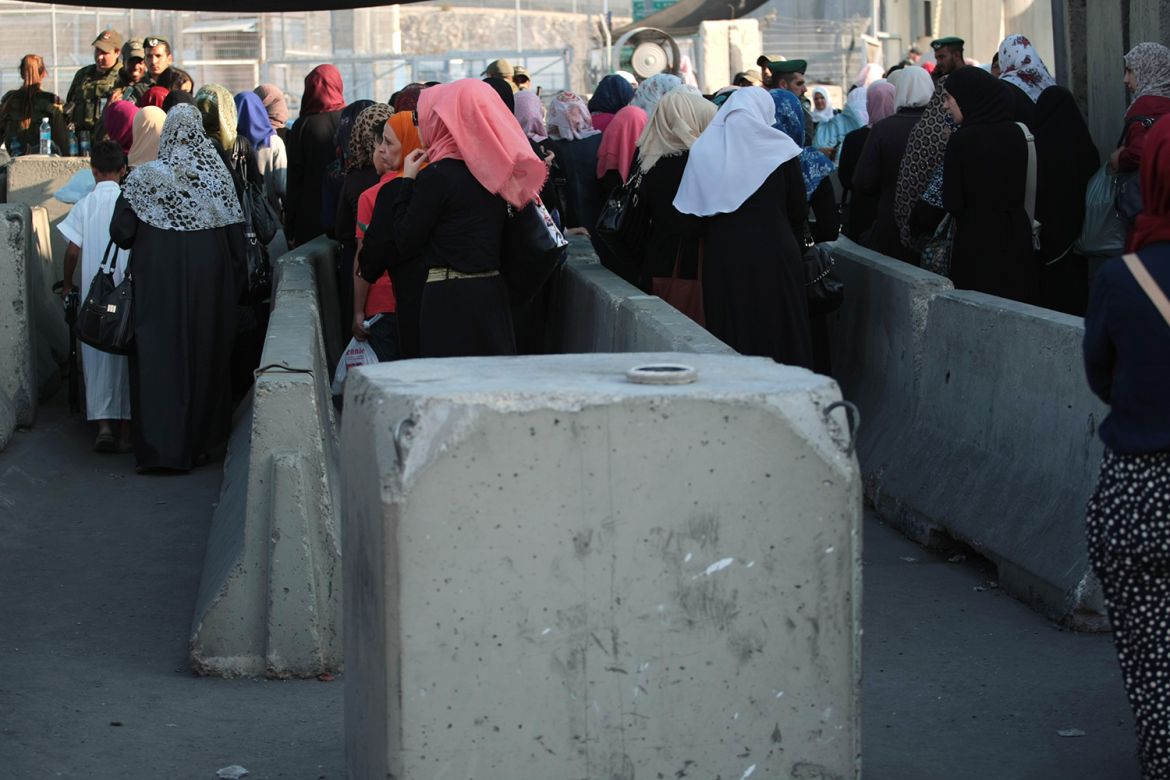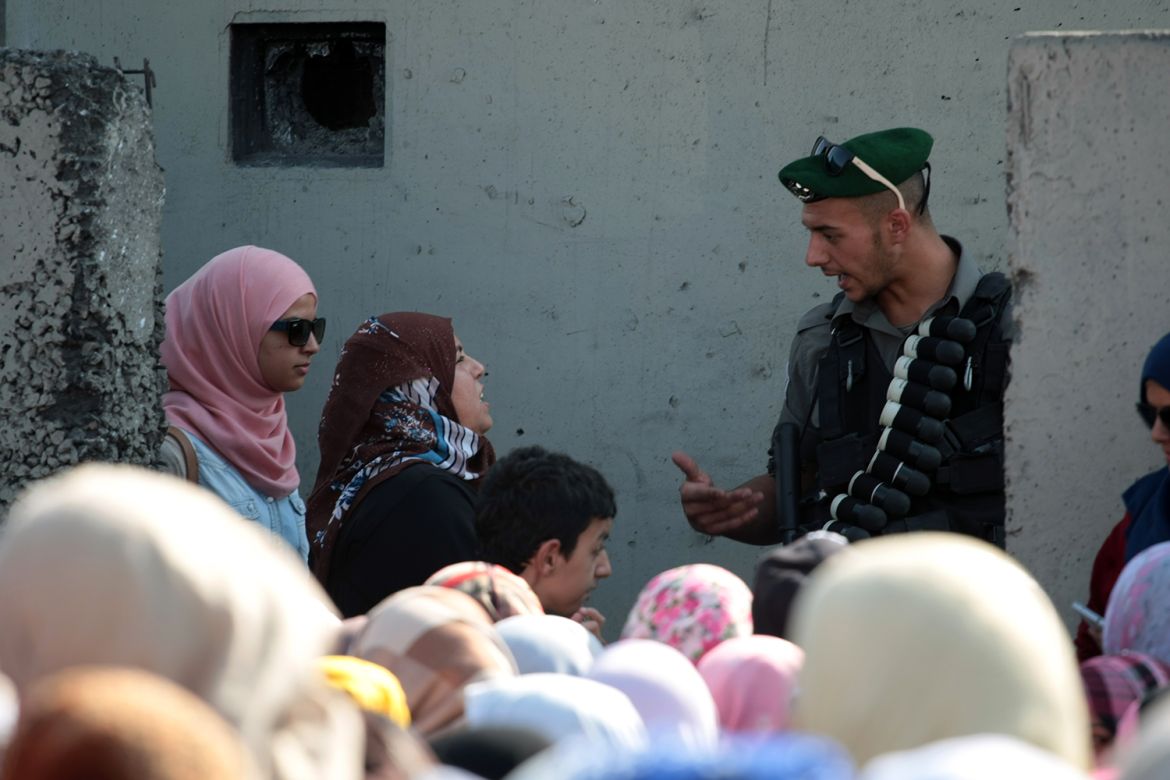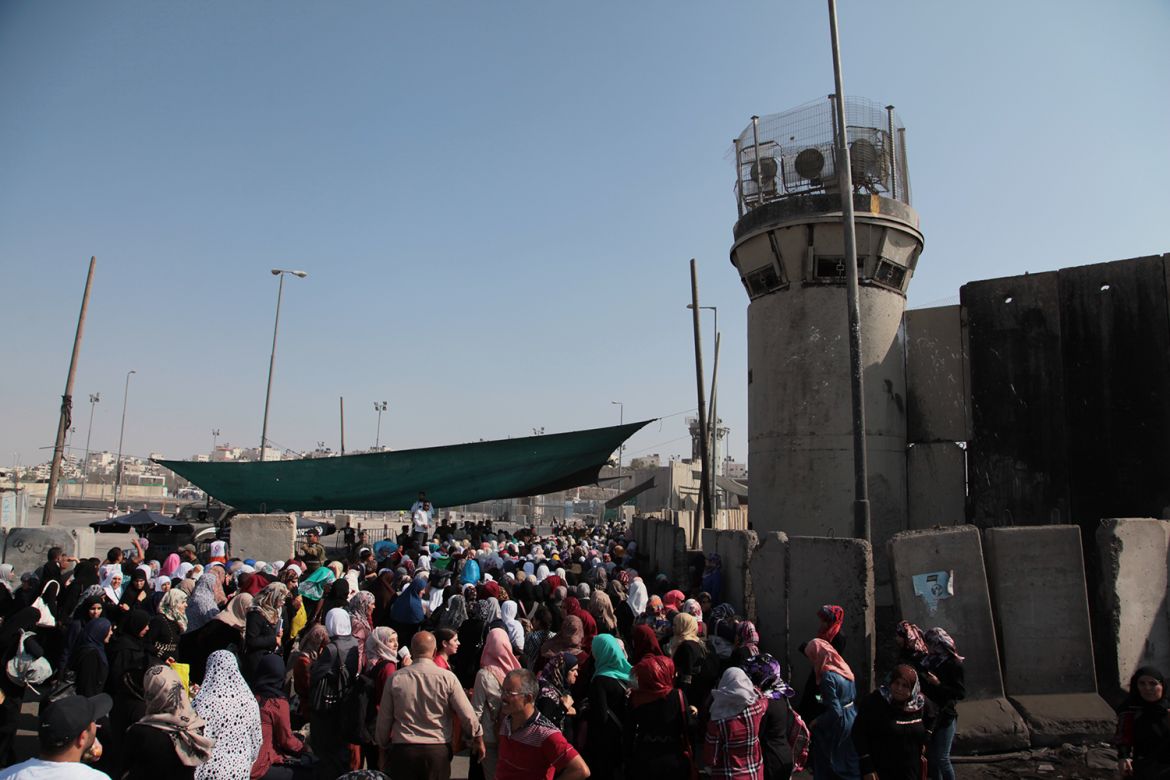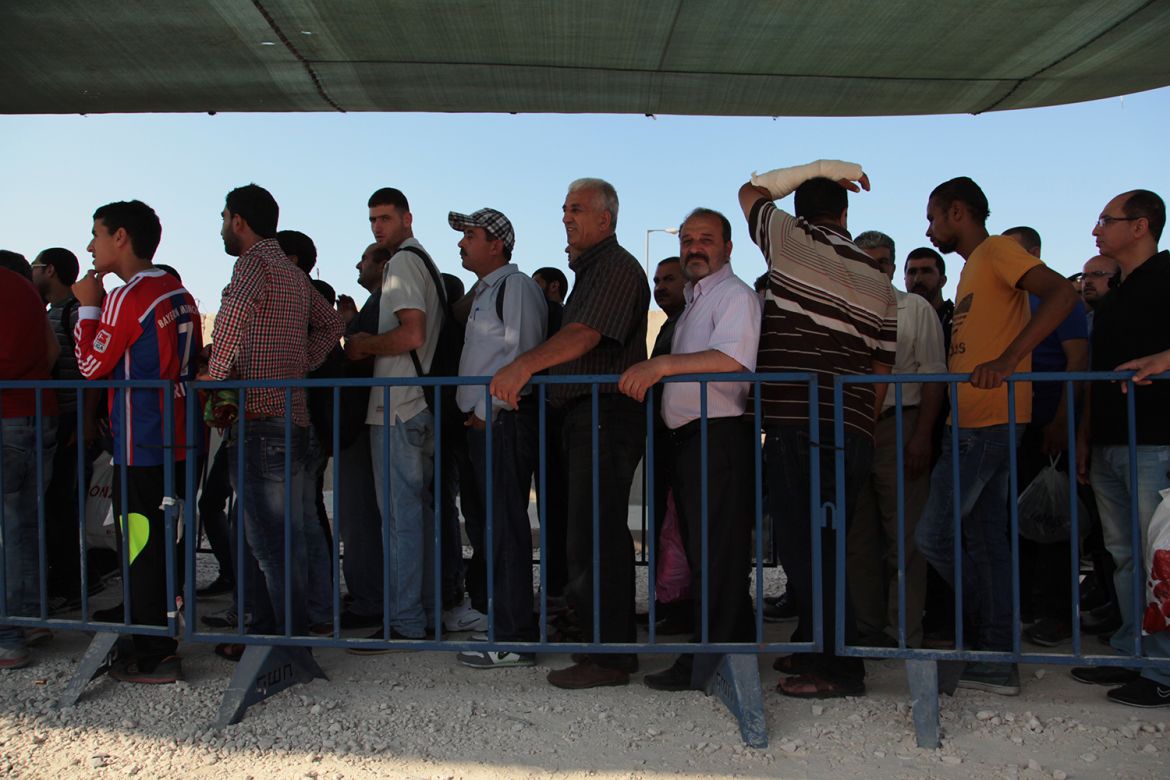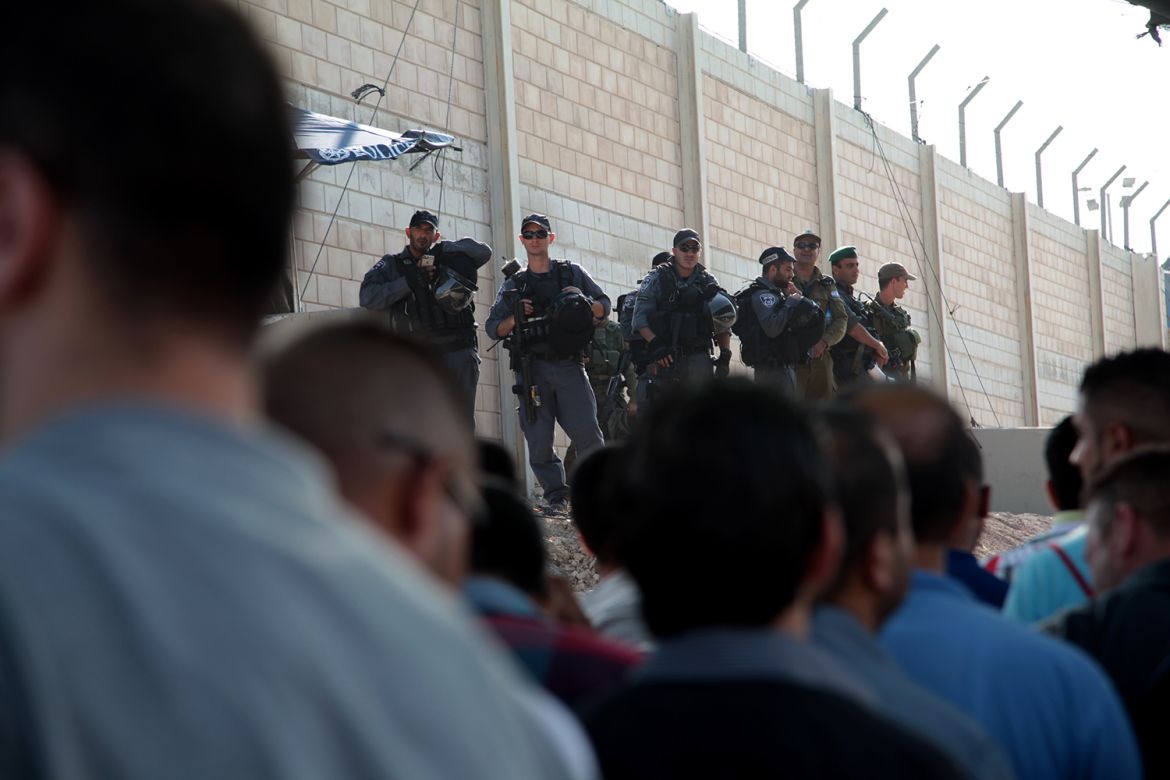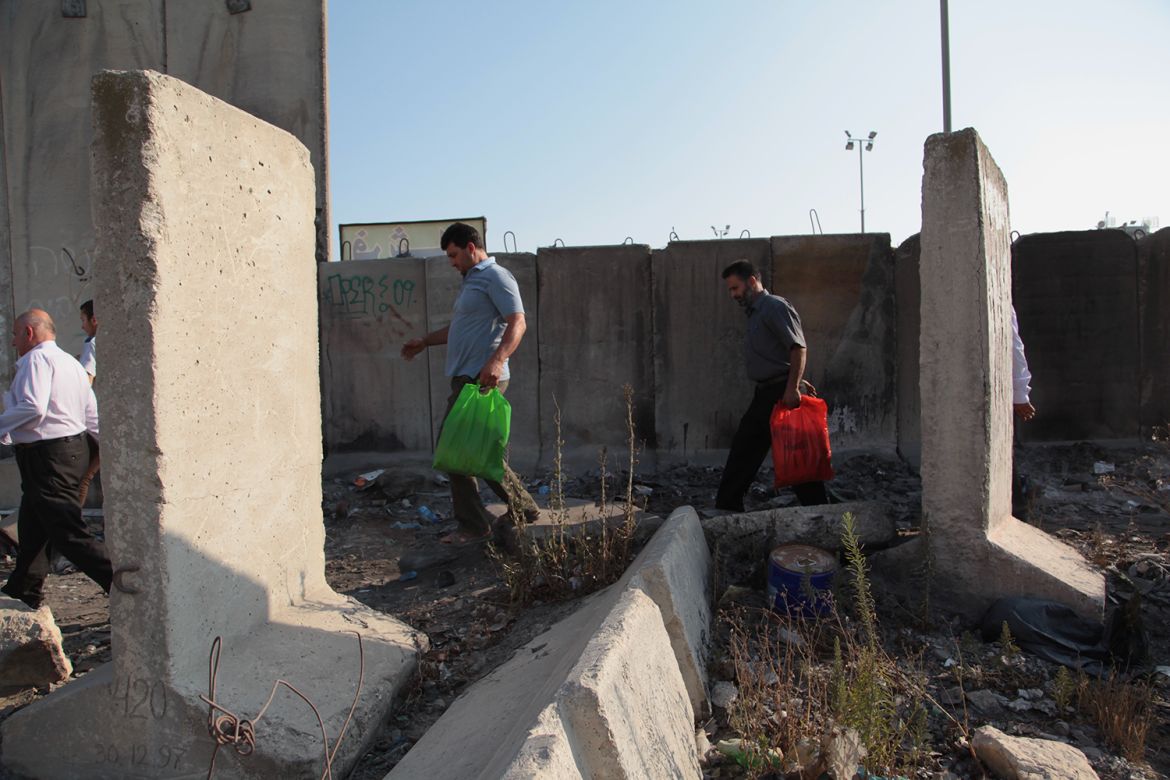In Pictures
Palestinians head to Al-Aqsa mosque during Ramadan
Palestinians from the occupied West Bank face hardship crossing Israeli checkpoints to reach the holy site for prayers.
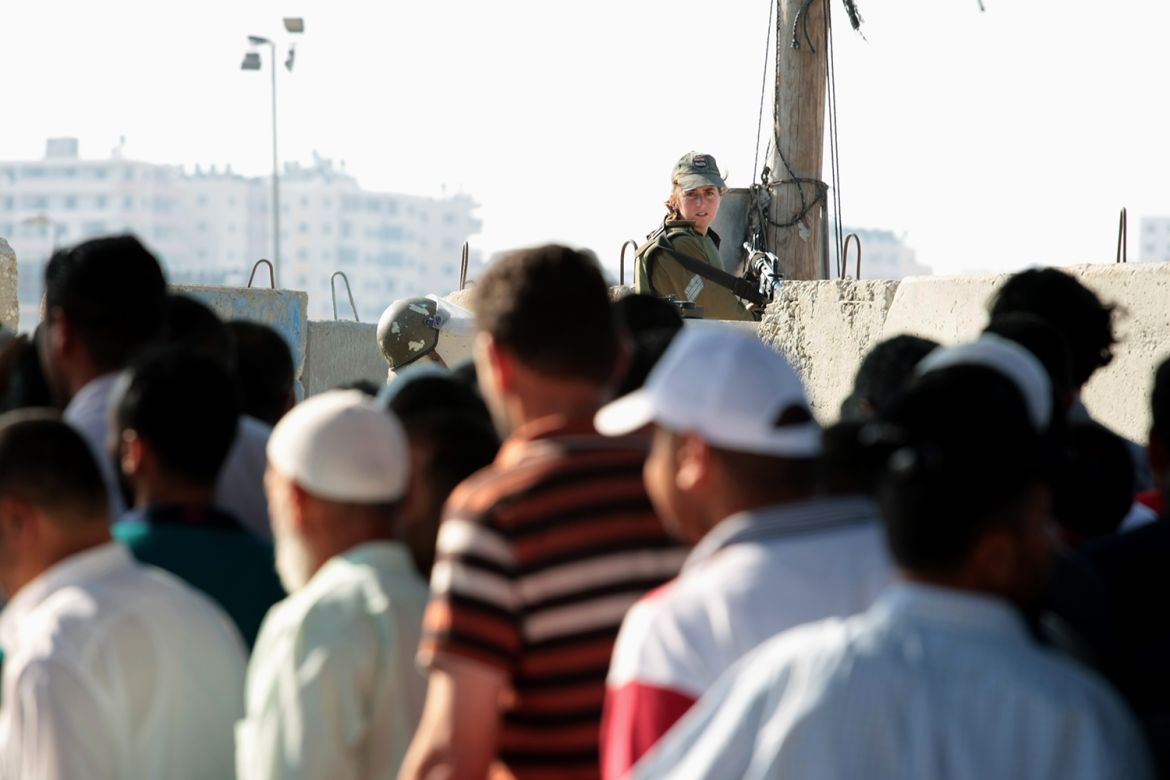
Qalandiya checkpoint, Occupied West Bank – Thousands of Palestinians headed to Al-Aqsa Mosque in Jerusalem to pray during Laylat al-Qadr, one of the most significant nights in the Muslim holy month of Ramadan.
Israeli authorities closed entry for vehicles through Qalandiya checkpoint to Jerusalem on the evening of July 12, until the evening of July 14, to facilitate the entry of the large number of Palestinians to Jerusalem, according to Israeli police.
The Israeli military allowed Palestinian women over 30 years old and men over 50 years old to enter Jerusalem from the occupied West Bank to pray in Al-Aqsa Mosque, one of the holiest sites for Muslims.
Authorities designated two entrances to the checkpoint for Palestinians, separating men and women. The Israeli army denied passage through the checkpoint to several Palestinian women under 30 and men under 50 who did not have special permits “for security reasons”, according to many of those denied.
The following images were taken on July 13 in the afternoon at the Israeli checkpoint of Qalandiya, 4 km south of the West Bank city of Ramallah, which separates Jerusalem from all cities under some control of the Palestinian Authority including Nablus, Jenin, Qalqilya, Tulkarm, Hebron and Bethlehem.


